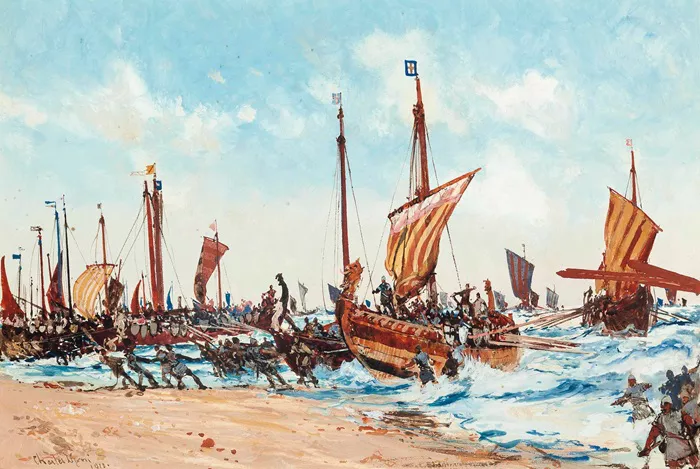Australia has a rich and complex history, shaped by Indigenous cultures, European exploration, and modern developments. February 20 has been a significant date in various aspects of Australia’s past, from political milestones and exploration achievements to cultural developments and environmental events. This article explores key historical events that occurred on this day, highlighting their impact on the nation.
What Happened on February 20 in Australian History?
1. The First Convicts Arrive at Norfolk Island (1788)
On February 20, 1788, the first group of convicts was sent to Norfolk Island from Sydney Cove. This move was ordered by Governor Arthur Phillip, who sought to establish a secondary settlement to ease overcrowding in the main colony and secure resources. Lieutenant Philip Gidley King led a small party of 23 convicts and 15 free men to the island. The group faced immense difficulties, including limited supplies and harsh conditions. However, Norfolk Island eventually became a significant penal settlement and agricultural hub. The early settlement helped ensure food security for the struggling Sydney colony.
2. Completion of the First Telegraph Line Between Melbourne and Adelaide (1858)
On February 20, 1858, the first telegraph connection between Melbourne and Adelaide was completed. This was a crucial step in improving communication across the vast Australian continent. Before telegraphs, messages were delivered by horseback or ship, which took days or weeks. The new technology allowed instant communication between two major colonies, fostering economic and political cooperation. It was also an essential precursor to the Overland Telegraph Line, which would later connect Australia to the rest of the world.
3. The Great Fire of Brisbane (1864)
Brisbane suffered a devastating fire on February 20, 1864. The blaze destroyed several key buildings in the city center, including the courthouse, shops, and warehouses. The fire spread rapidly due to strong winds and wooden structures. Despite the efforts of early firefighters and citizens, much of the commercial district was left in ruins. This disaster led to significant changes in Brisbane’s fire safety regulations. It also encouraged the use of brick and stone for future constructions.
4. The Formation of the Western Australian Government Railways (1890)
February 20, 1890, marked the official formation of the Western Australian Government Railways (WAGR). This organization played a vital role in the development of the state’s transport system. Prior to this, rail services were privately owned and limited in reach. The new government-controlled railways expanded networks, supported agricultural exports, and improved connectivity between regional towns. The WAGR helped drive Western Australia’s economic growth during the gold rush era and beyond.
5. First Australian Air Mail Service (1914)
On February 20, 1914, Australia witnessed its first official air mail service. The historic flight took place between Melbourne and Sydney, covering a distance of over 900 kilometers. The aircraft, piloted by French aviator Maurice Guillaux, carried a batch of letters and newspapers. This event demonstrated the potential of aviation in revolutionizing communication and transport. Although it would take several more years for commercial air mail services to become widespread, this pioneering effort paved the way for Australia’s aviation industry.
6. Prime Minister Robert Menzies Announces Australia’s Involvement in the Vietnam War (1965)
On February 20, 1965, Prime Minister Robert Menzies made a significant announcement regarding Australia’s military involvement in the Vietnam War. The government committed additional troops to support the United States in its fight against communist forces in South Vietnam. This decision was highly controversial, sparking protests and debates across the nation. The Vietnam War had lasting effects on Australia’s society, politics, and foreign relations. Many veterans struggled with post-war trauma, and public sentiment eventually turned against the war.
7. Cyclone Carlos Strikes Northern Australia (2011)
On February 20, 2011, Tropical Cyclone Carlos struck parts of Northern Australia, particularly Darwin and surrounding areas. The cyclone brought heavy rainfall, strong winds, and widespread flooding. Infrastructure damage was severe, with roads, homes, and businesses affected. Fortunately, no lives were lost, but the disaster served as a reminder of the extreme weather conditions that regularly impact Australia. Emergency services and local communities worked tirelessly to recover from the destruction.
8. The Apology to the Stolen Generations (2008 – Reflection and Reconciliation)
Although not occurring on February 20 itself, the historic apology to the Stolen Generations by Prime Minister Kevin Rudd on February 13, 2008, continued to shape national discussions and policies. A week after the apology, on February 20, reconciliation efforts gained momentum, with communities across Australia holding forums and ceremonies. This period marked a turning point in recognizing the injustices faced by Indigenous Australians and the need for continued reconciliation efforts.
Conclusion
February 20 has witnessed numerous significant events in Australian history, ranging from colonial developments and technological advancements to political decisions and natural disasters. Each of these events has played a role in shaping the nation’s identity and progress. By understanding the past, Australians can better appreciate their country’s resilience and growth, ensuring a more informed and united future.
Related Topics:

